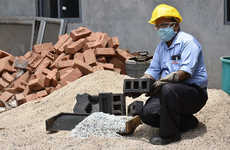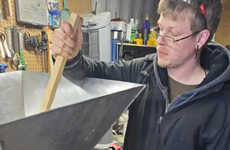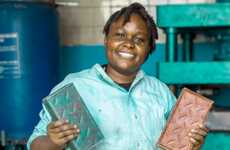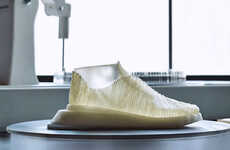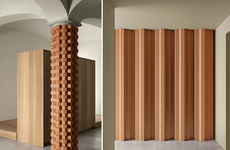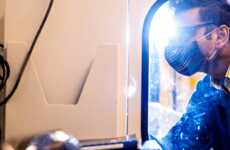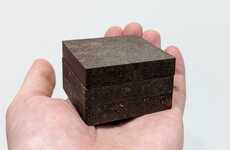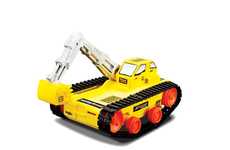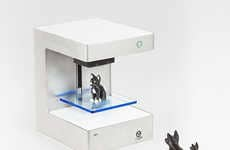
bioMason's Brick Block Building Materials Are Made Without Heat
Laura McQuarrie — February 3, 2014 — Art & Design
'bioMason' is a start-up that has developed a brick block that can be grown entirely from bacteria. One reason that spurred this concept into fruition is an argument bioMason makes, stating that traditional building materials like glass, concrete wood and steel all come from natural sources that will not be around forever. As well, some of the ways these materials are produced release tons of CO2 into the atmosphere.
As bioMason describes: "Bacteria, which provide a precise environment to form in combination with a nutrient, nitrogen and calcium source allow for the formation of natural cement in ambient temperatures." So bioMason is able to grow its bricks without the use of heat in about five days, which would provide a new building material that’s widely available and doesn’t cause harm to the environment.
bioMason was awarded first place in the Cradle to Cradle Product Innovation Challenge, as well as the Postcode Lottery Green Challenge.
As bioMason describes: "Bacteria, which provide a precise environment to form in combination with a nutrient, nitrogen and calcium source allow for the formation of natural cement in ambient temperatures." So bioMason is able to grow its bricks without the use of heat in about five days, which would provide a new building material that’s widely available and doesn’t cause harm to the environment.
bioMason was awarded first place in the Cradle to Cradle Product Innovation Challenge, as well as the Postcode Lottery Green Challenge.
Trend Themes
1. Bacteria-grown Bricks - Using bacteria to grow bricks without heat presents an opportunity for disruptive innovation in eco-friendly building materials.
2. Sustainable Materials - The movement towards using sustainable materials like bacteria-grown bricks presents an opportunity for disruptive innovation in the construction industry.
3. Reduction of CO2 Emissions - Developing building materials that do not release tons of CO2 into the atmosphere opens up opportunities for disruptive innovation in the fight against climate change.
Industry Implications
1. Construction - The introduction of bacteria-grown bricks in construction could disrupt traditional building practices and lead to more sustainable structures.
2. Green Building - The eco-friendly nature of bacteria-grown bricks aligns with the goals of the green building industry, creating potential for disruptive innovation in sustainable construction.
3. Materials Science - The research and development of new materials like bacteria-grown bricks presents an opportunity for disruptive innovation in the materials science industry.
4.3
Score
Popularity
Activity
Freshness

